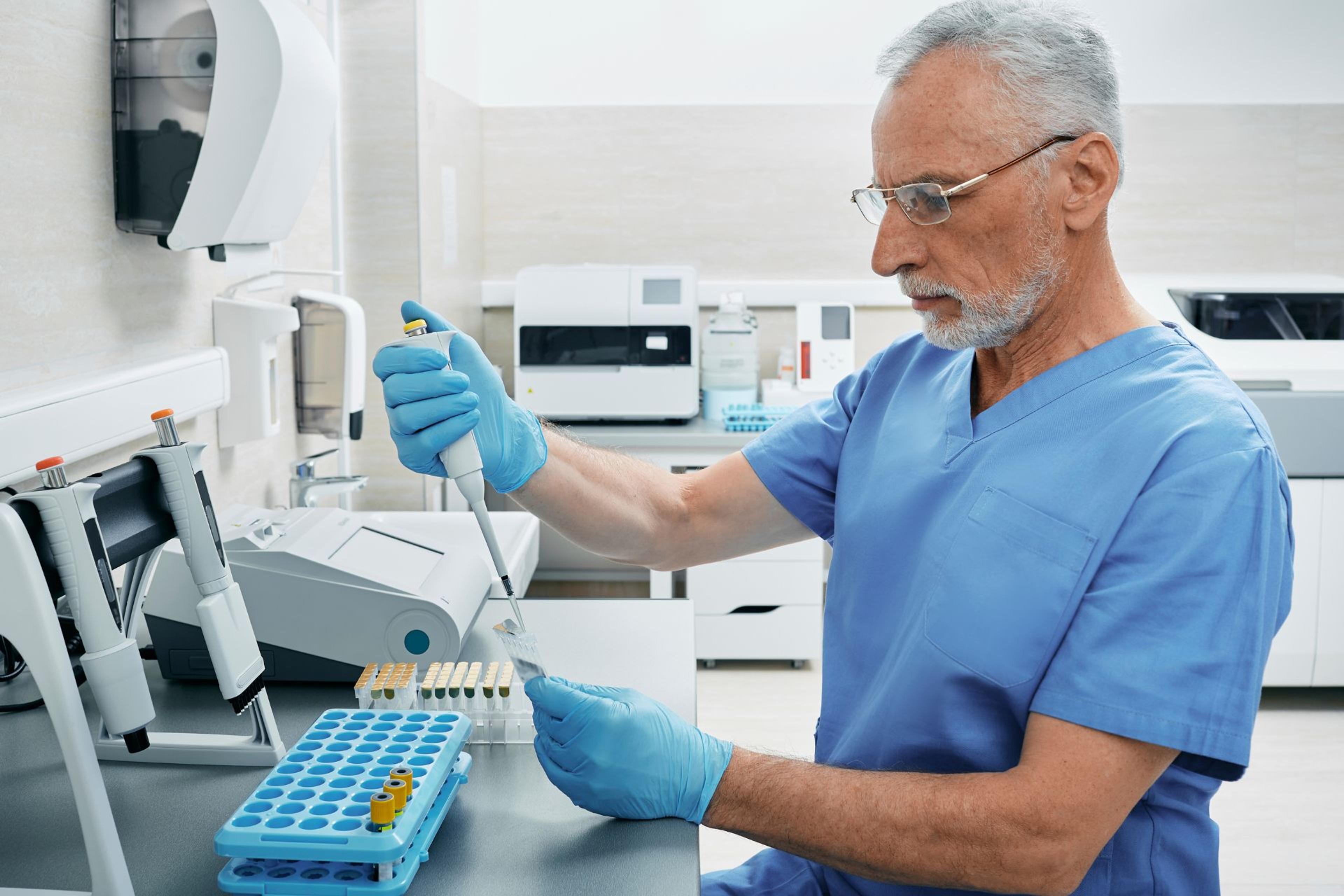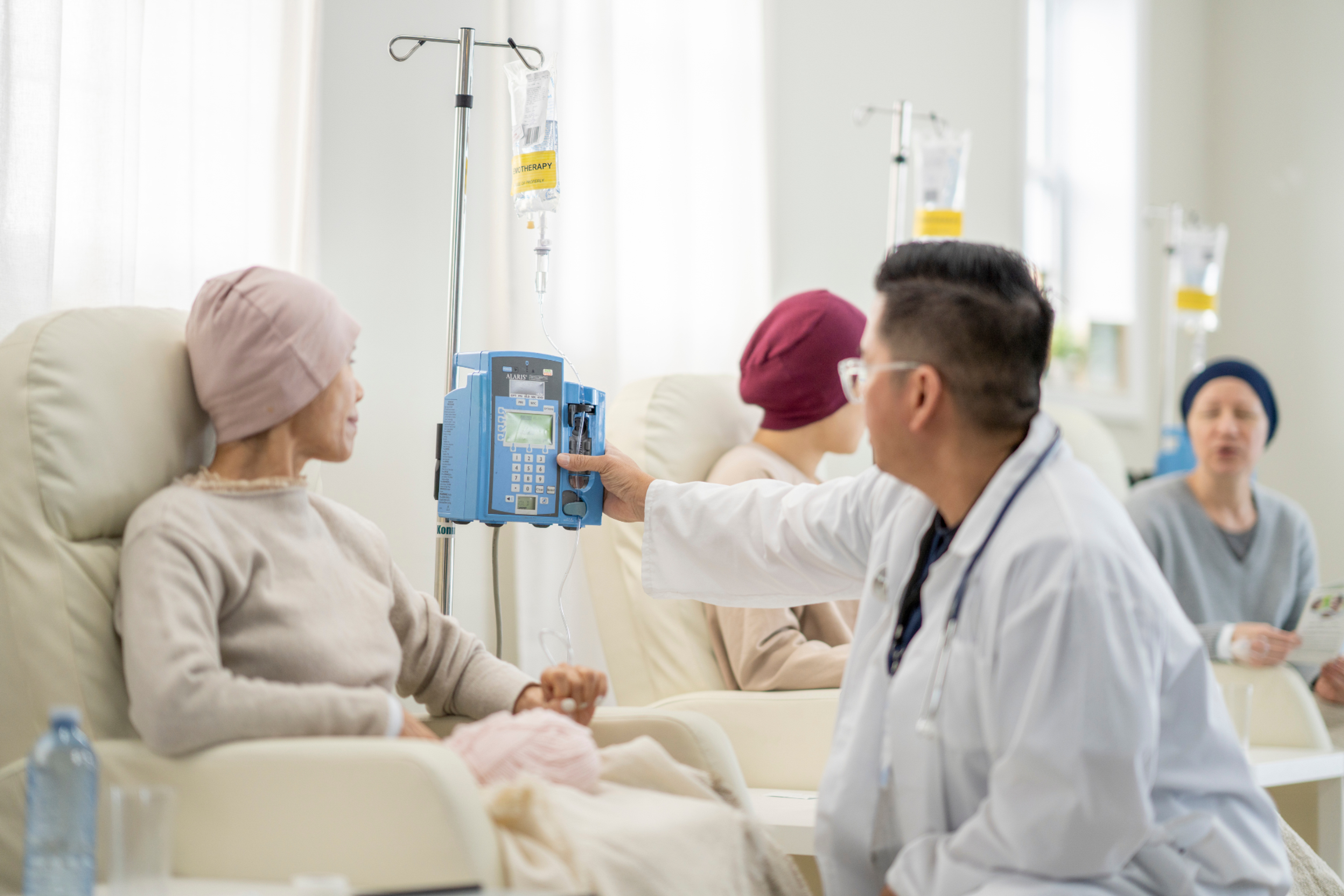Clinical Experience for Medical School: Why It Matters and How to Get It
If you're considering medical school, clinical experience is crucial. This article explains why it matters and offers tips on how to get it.
Posted July 18, 2025

Join a free event
Learn from top coaches and industry experts in live, interactive sessions you can join for free.
Table of Contents
Aspiring medical students often hear the phrase, "clinical experience is essential," but what exactly does that mean, and why is it so important? In this article, we'll take an in-depth look at the value of clinical experience in medical education and provide tips on how to obtain meaningful experiences in the field.
The Importance of Clinical Experience in Medical Education
Clinical experience is crucial in preparing medical students for the complex and demanding profession of healthcare. It allows students to observe healthcare professionals, learn about the different specialties in the field of medicine, and gain hands-on experience with patients.
Clinical experience provides a unique insight into the work involved in healthcare, and it helps students understand the challenges and rewards of the profession. Medical schools recognize the importance of this type of experience and often require students to complete a certain number of hours before graduating.
Moreover, clinical experience also helps medical students develop important skills such as communication, teamwork, and problem-solving. These skills are essential for healthcare professionals to effectively collaborate with colleagues, communicate with patients and their families, and make critical decisions in high-pressure situations. Clinical experience provides a safe and supervised environment for students to practice and refine these skills before entering the workforce.
How to Find Clinical Experience Opportunities
One of the most significant challenges in obtaining clinical experience is knowing where to look. Fortunately, there are several ways to find opportunities. Students can start by contacting their college's pre-health advising office, local hospitals, and healthcare facilities to inquire about shadowing or volunteer opportunities. Online resources such as websites dedicated to healthcare volunteering or internships may also provide a wealth of information.
Another way to find clinical experience opportunities is by networking with healthcare professionals. Students can attend career fairs, conferences, and other events to meet professionals in their field of interest. They can also reach out to alumni from their college who are working in healthcare and ask for advice or guidance on finding clinical experience opportunities.
It's important to keep in mind that clinical experience can come in many forms. Students can gain experience by volunteering at a hospital, shadowing a healthcare professional, or participating in a research project. They can also consider opportunities outside of traditional healthcare settings, such as working with community organizations or participating in global health initiatives.
Tips for Securing a Clinical Experience Placement
Securing a clinical experience placement can be competitive, so students need to take several steps to ensure their application stands out. Firstly, students should begin the application process early to give themselves ample time to apply for multiple opportunities. Secondly, it's essential to tailor the application to the position being applied for. A generic application is unlikely to impress the selection committee.
Finally, it's crucial to demonstrate a real interest in the profession and a passion for helping others. Healthcare providers want people who are genuinely passionate about helping others and are self-motivated.
One additional tip for securing a clinical experience placement is to network with professionals in the field. Students can attend career fairs, join professional organizations, and connect with alumni who work in healthcare. Building relationships with professionals can lead to valuable connections and potential job opportunities in the future. It's also a great way to learn more about the profession and gain insights into what employers are looking for in candidates.
The Benefits of Shadowing a Medical Professional
Shadowing healthcare practitioners allows students to get hands-on experience and understand the workings of different healthcare specialties. Observing a medical professional in action is an excellent way to learn about the day-to-day realities of the job, including how medical professionals interact with patients and each other. Shadowing also provides an opportunity to ask questions about procedures and techniques and gain insight into the professional's decision-making process.
Furthermore, shadowing can help students determine if a particular healthcare specialty is the right fit for them. It allows them to see firsthand the challenges and rewards of the profession and make an informed decision about their career path. Additionally, shadowing can provide networking opportunities and help students build relationships with healthcare professionals who can serve as mentors or provide recommendations for future job opportunities.
It is important to note that shadowing should be approached with professionalism and respect for the medical professional's time and privacy. Students should always ask for permission before observing and follow any guidelines or protocols set by the healthcare facility. Overall, shadowing can be a valuable experience for students interested in pursuing a career in healthcare.
Volunteering vs Paid Clinical Experience: Pros and Cons
Both volunteer and paid clinical experience opportunities have their pros and cons. Volunteer experiences provide a more flexible schedule, and they're a great way to gain exposure to the field. They are also an excellent opportunity to build relationships with professionals in the field and network. Paid experiences, on the other hand, often provide more structure, and students have more direct interaction with patients.
However, one potential downside of volunteer experiences is that they may not provide as much hands-on experience as paid opportunities. Additionally, paid experiences may come with higher expectations and more pressure to perform well. It's important for students to weigh the pros and cons of each type of experience and choose the one that best fits their goals and needs.
How to Make the Most of Your Clinical Experience
Once you have secured a clinical experience, it's crucial to make the most of the opportunity. Students should be proactive, pay attention, and ask questions. It's also essential to take notes and reflect on the experience to understand how it contributes to your personal and professional growth. Consider keeping a journal to document your observations and what you learned during each clinical experience.
Another way to make the most of your clinical experience is to network with professionals in the field. Take the time to introduce yourself to the staff and ask if they would be willing to share their experiences and insights with you. This can help you gain a better understanding of the industry and make valuable connections that could lead to future job opportunities.
Finally, don't be afraid to step outside of your comfort zone and take on new challenges during your clinical experience. This could mean volunteering for a new task or shadowing a different department. By pushing yourself to try new things, you'll gain a broader perspective and develop new skills that will be valuable in your future career.
The Role of Clinical Experience in Medical School Admissions
Clinical experience is becoming increasingly important in medical school admissions. Medical schools want to know that prospective students have a thorough understanding of the realities of medicine and have hands-on experience working with patients in a healthcare setting. Demonstrating a commitment to the profession through clinical experience will increase the likelihood of being accepted to a medical school program.
One way to gain clinical experience is through volunteering at a hospital or clinic. This not only provides valuable experience but also shows a dedication to helping others. Another option is to shadow a physician or other healthcare professional to gain insight into the daily responsibilities and challenges of the job.
It is important to note that clinical experience is not the only factor considered in medical school admissions. Academic performance, extracurricular activities, and personal qualities such as empathy and communication skills are also taken into account. To learn more about how to maximize other parts of your application in addition to clinical experience, read these expert pieces:
- The Ultimate Guide to the Medical School Application
- How to Write a Powerful Personal Statement for Medical School
- The Ideal Number of Volunteer Hours for Medical School Applications
- Crafting a Powerful AMCAS Most Meaningful Experience Essay
Common Challenges Faced During Clinical Experience and How to Overcome Them
When embarking on a clinical experience, students may face several challenges. These include things like working with difficult patients, unfamiliar procedures, or unfamiliar medical jargon. To overcome these challenges, students should be proactive in asking questions and seeking feedback from their supervisor. Reflecting on these experiences can also help prepare for future situations.
The Impact of International Clinical Experiences on Medical Education
International clinical experiences offer a unique opportunity for students to gain exposure to diverse cultures and medical practices. They can also provide opportunities to appreciate the cultural and economic challenges faced in other countries. These experiences further offer future medical professionals the chance to acquire skills that could be valuable in their future practice, such as language and cultural competencies.
How to Document and Showcase Your Clinical Experience on Your Resume or CV
Clinical experience should be prominently displayed on your resume or CV when applying for medical school or internships. The experience should be presented in a way that is clear, concise, and highlights the skills and knowledge you acquired. Consider including information such as hours worked, supervisors' names, or a brief description of the responsibilities during the clinical experience.
The Future of Clinical Experience in Medical Education and Practice
The emphasis on clinical experience in medical education and practice is only expected to continue. Advances in healthcare technology, cybermedicine, and artificial intelligence are all expected to have a significant influence on the profession. Aspiring healthcare professionals must stay informed, prepared for change, and continue to gain relevant and meaningful clinical experience.
Conclusion
Clinical experience is essential for medical students seeking to gain experience and knowledge relevant to practicing in a medical profession. Finding opportunities can be challenging, but these hurdles can be overcome through determination, persistence, and a genuine passion for the field. The benefits of clinical exposure extend far beyond admissions—it’s where future physicians begin to develop their identity, understand patient care, and build essential skills.
Observe, ask questions, and reflect to make the most of every experience—they will shape not only your application, but your path in medicine. For those looking to strengthen their clinical background and present it effectively in their application, personalized support from a Leland admissions coach can make all the difference. Explore top med school coaches here.
See: The 10 Highest-Rated Med School Coaches
Read next:
- The 20 Best Medical Schools in the US (T20): Acceptance Rates, MCAT Scores, & GPA
- AACOMAS Application Timeline: Key Dates and Tips
- The Different Types of Medical Careers – and Which One is Right for You
- The 10 Best Undergraduate Majors for Medical School
- Research Hours for Medical School: How Many You Need & How to Get Them
FAQs
What counts as clinical experience for medical school?
- Clinical experience usually means any direct exposure to patient care or observation of healthcare professionals. This includes shadowing doctors, volunteering in hospitals or clinics, working as a medical scribe, or serving as a CNA or EMT.
How many clinical hours do I need for med school?
- There’s no official number, but most successful applicants have at least 100–150 hours of quality clinical experience. Focus on meaningful engagement over just logging time.
How do I find clinical experience as a pre-med student?
- Start with your college’s pre-health advising office, local hospitals, or community clinics. Also, check out volunteer programs, scribe companies, hospice organizations, or global health trips.
Is shadowing enough clinical experience?
- Shadowing is a great start, especially for exposure to different specialties. But hands-on experience (even as a volunteer) where you interact with patients shows deeper commitment and readiness for med school.
Can I get into med school without paid clinical experience?
- Yes—volunteer work is completely valid and very common. What matters most is showing genuine patient interaction and learning from the clinical environment.

























